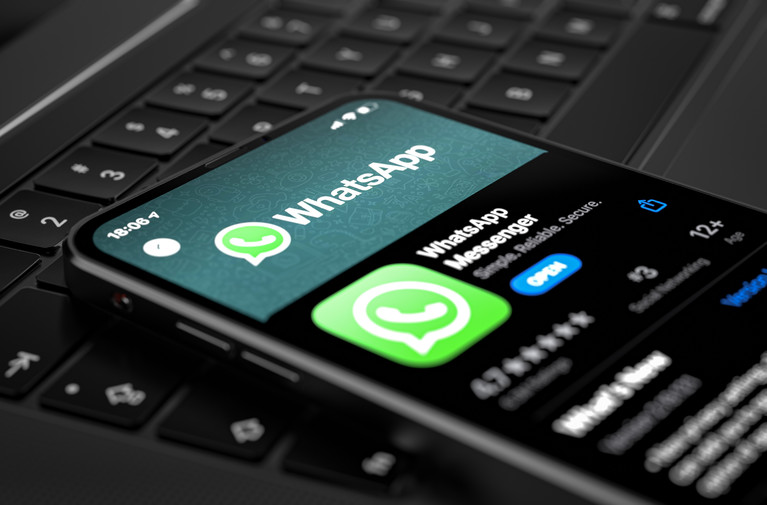New York, NY – August 28, 2025
In an era where instant messaging dominates daily life, WhatsApp has become a go-to tool for clients seeking quick, casual chats with their lawyers. With over 3 billion monthly active users worldwide, the app’s free, global reach and versatile features—like voice notes, file sharing, and group chats—make it a favorite among international and younger clients who expect responsive, smartphone-friendly communication. However, while clients rave about its convenience, many legal professionals are hitting pause, citing serious concerns over confidentiality, record-keeping, and compliance. A recent Law.com analysis highlights this growing divide, with some law firms updating protocols to outright prohibit client communications via the app.
Why Clients Are Hooked on WhatsApp
For clients, WhatsApp bridges the gap between formal legal advice and everyday conversation. “It’s fast, personal, and feels like texting a friend,” said one international business owner in a recent survey by ClientWindow, a legal tech firm. The app’s end-to-end encryption provides a sense of security, allowing users to share documents, get real-time updates on case progress, or even schedule appointments without the delays of email. In a post-pandemic world, where remote work is the norm, clients—especially those abroad—appreciate its cross-platform accessibility and low cost, making it ideal for time-sensitive queries like contract clarifications or urgent filings.
Legal tech experts note that this preference aligns with broader trends. A 2025 Deloitte report found that 91% of insurers (a parallel regulated industry) are investing in AI-driven tools for client engagement, but messaging apps like WhatsApp are leading the charge for immediacy. For lawyers dealing with global clients, the app’s ubiquity—particularly in regions like Europe, Asia, and Latin America—means it’s often the default for non-English speakers or those in areas with unreliable email infrastructure. “Clients feel prioritized when they get a voice note response in seconds,” explained a marketing coordinator at a Chicago firm, echoing sentiments from a BambooHR workplace survey showing a 12% rise in client satisfaction tied to flexible communication.
The Lawyers’ Side: A Minefield of Ethical and Practical Risks
Despite its appeal, WhatsApp poses significant hurdles for attorneys bound by strict ethical rules on client confidentiality and data preservation. Under guidelines from bodies like the Solicitors Regulation Authority (SRA) in the UK and the American Bar Association (ABA) in the US, lawyers must ensure communications are secure, documented, and supervised—requirements WhatsApp struggles to meet out of the box.
Key concerns include:
- Lack of Record-Keeping and Supervision: Unlike email, WhatsApp chats aren’t automatically archived in case management systems. If a lawyer screenshots a conversation for the client file, it’s manual and error-prone, potentially leaving “invisible” discussions that regulators or insurers could question during audits. “It’s as if the conversation didn’t happen,” warns a Lexology analysis, noting this violates SRA Code 4.4 on effective supervision. In the US, similar issues arise under ABA Model Rule 1.6, which mandates reasonable efforts to prevent unauthorized access to confidential information.
- Security Vulnerabilities: While end-to-end encryption protects messages in transit, the app’s reliance on personal devices raises red flags. Lost phones, hacks, or even family members accessing the device could expose sensitive data. WhatsApp’s privacy policy allows Meta (its parent company) to use metadata for ads, and features like contact syncing have drawn criticism for potentially revealing client identities—violating the “third-party doctrine” in legal ethics. A 2019 Above the Law article highlighted how apps slurping up contacts could inadvertently disclose client lists, a risk amplified in high-stakes cases like mergers or criminal defense.
- Billing and Compliance Nightmares: Quick chats often go unbilled, eroding revenue, and proving receipt of critical information (e.g., for client consent) is tricky if messages are deleted. In disputes, WhatsApp evidence may not hold up in court without proper authentication, as noted in a 2022 Altlaw blog on electronic stored information (ESI). Recent incidents, like the 2021 scamming of UK firm Linklaters via WhatsApp impersonation, underscore phishing risks.
On X, legal professionals are vocal about these issues. One post from privacy expert Christina Ayiotis warned, “Law firm protocols are being updated to prohibit client communications via WhatsApp,” citing privacy pitfalls. Another user quipped, “Believing everything lawyers [say] is foolish… they’ll charge u per hour, per email and WhatsApp message,” highlighting perceived overreach but also the app’s billing challenges.
Navigating the Divide: Solutions and Trends
Firms are adapting with hybrid approaches. Tools like ClientWindow integrate WhatsApp with email and archiving systems (e.g., Mimecast), ensuring compliance while preserving client preferences. Secure portals and WhatsApp Business API allow automated logging, billable hour tracking, and features like quick replies for FAQs. Experts recommend clear client guidelines: Use WhatsApp for non-sensitive updates only, enable two-factor authentication, and avoid public Wi-Fi.
As the legal tech market booms—projected to hit $5.69 billion by 2033—innovations like AI-powered compliance tools could bridge the gap. For now, the tension persists: Clients demand the ease of WhatsApp, but lawyers prioritize protection. “It’s a balancing act,” says IT consultant Alex Hutchinson. “The more widespread it becomes, the harder it is to rein in.” Until regulations catch up, many firms are opting for caution, reminding us that in law, convenience can’t trump confidentiality.
